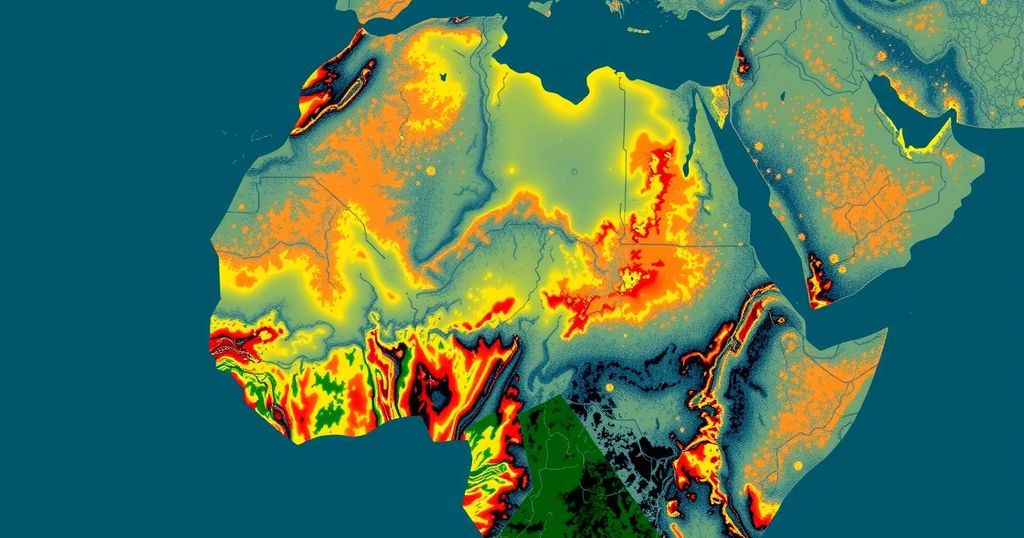Senegal’s Climate and Development Dilemma: Addressing Vulnerabilities and Seizing Opportunities
Senegal’s CCDR outlines the critical impact of climate change on its development goals, emphasizing the need for proactive climate action and investment in sustainable urban growth. Despite economic progress, persistent inequalities and climate vulnerabilities threaten sustainable development. The report recommends transitioning to renewable energy, enhancing natural resource management, and fostering public-private sector collaboration for climate financing to achieve resilience and growth.
The Country Climate and Development Report (CCDR) for Senegal underscores a pressing dilemma: the impact of climate change poses significant threats to the nation’s socio-economic progress. Despite a decade of notable economic growth, characterized by increased international competitiveness and stable external conditions, Senegal’s advancement in inclusive growth remains inadequate. Elevated levels of poverty and entrenched inequalities have hindered full achievement of its development potential. Senegal’s vulnerabilities have been magnified by multifaceted crises and climate risks, which have disrupted its socio-economic framework. The nation’s geographic and economic reliance on natural resources renders it particularly susceptible to climatic variations. This problem is exacerbated by the slow pace of economic diversification, perpetuating vulnerabilities to climate-induced challenges. As external uncertainties loom, they hinder growth potential, revealing persistent limitations that obstruct productive and sustainable economic growth. The CCDR advocates for proactive measures that not only address climate change but also enhance Senegal’s overall development. The financial requirements for climate action in Senegal, while still significant, are comparatively modest relative to its economy, with long-term benefits projected to extend beyond mere climate adaptation. A shift toward renewable energy generation, particularly leveraging the country’s vast solar potential, is crucial for meeting these climate objectives while satisfying rising energy demands. However, it is vital to address the risks associated with a delay in both the rollout of renewable energy and securing adequate financing. Additionally, the CCDR emphasizes the necessity for robust adaptations, targeting key development interventions that are critical for climate resilience. Improved natural resource management is identified as a pivot for fostering stable economic activities and securing livelihoods. Promoting the development of sustainable urban areas is essential for driving economic growth while also enhancing climate resilience and mitigating environmental impacts. The urgency for climate financing is pronounced, as current investments remain insufficient to bridge the significant funding gap necessary for effective climate action. Public and private sector collaboration is imperative to mobilize necessary resources and direct investments towards climate-compatible initiatives. The government can facilitate this process by establishing incentives, augmenting the domestic financial market, and experimenting with innovative financing instruments such as sustainability-linked bonds and loans. The successful implementation of these strategies requires a healthy private sector committed to climate-resilient solutions. The CCDR initiative spearheaded by the World Bank Group serves as a vital mechanism that integrates the realms of climate change and development. It directs countries towards prioritizing impactful actions capable of diminishing greenhouse gas emissions while enhancing adaptability and resilience to climate-induced disruptions. The report delineates concrete, actionable pathways for the transition towards a low-carbon, resilient future, thereby informing a wide range of stakeholders including governments, citizens, and the private sector about the critical intersection of development and climate agendas.
Senegal faces significant challenges related to climate change that threaten its development goals. The nation has experienced a decade of economic growth, primarily driven by favorable external conditions and increased international competitiveness. However, persistent inequalities and a slow pace of poverty reduction highlight the limits of this growth. Senegal’s economy, heavily dependent on natural resources and structural transformation, must confront the stark realities posed by climate risks, which have the potential to hinder sustainable social and economic progress.
In summary, the CCDR for Senegal illustrates the intricate relationship between climate change and development challenges. It advocates for proactive climate action, highlights the financial requirements for achieving climate objectives, and underscores the importance of sustainable urban development. Transitioning to renewable energy sources and improving natural resource management are paramount for fostering resilience against climate impacts while promoting economic growth. Collaborative efforts between public and private sectors will be essential to mobilize adequate resources for climate-compatible investments.
Original Source: www.worldbank.org




Post Comment